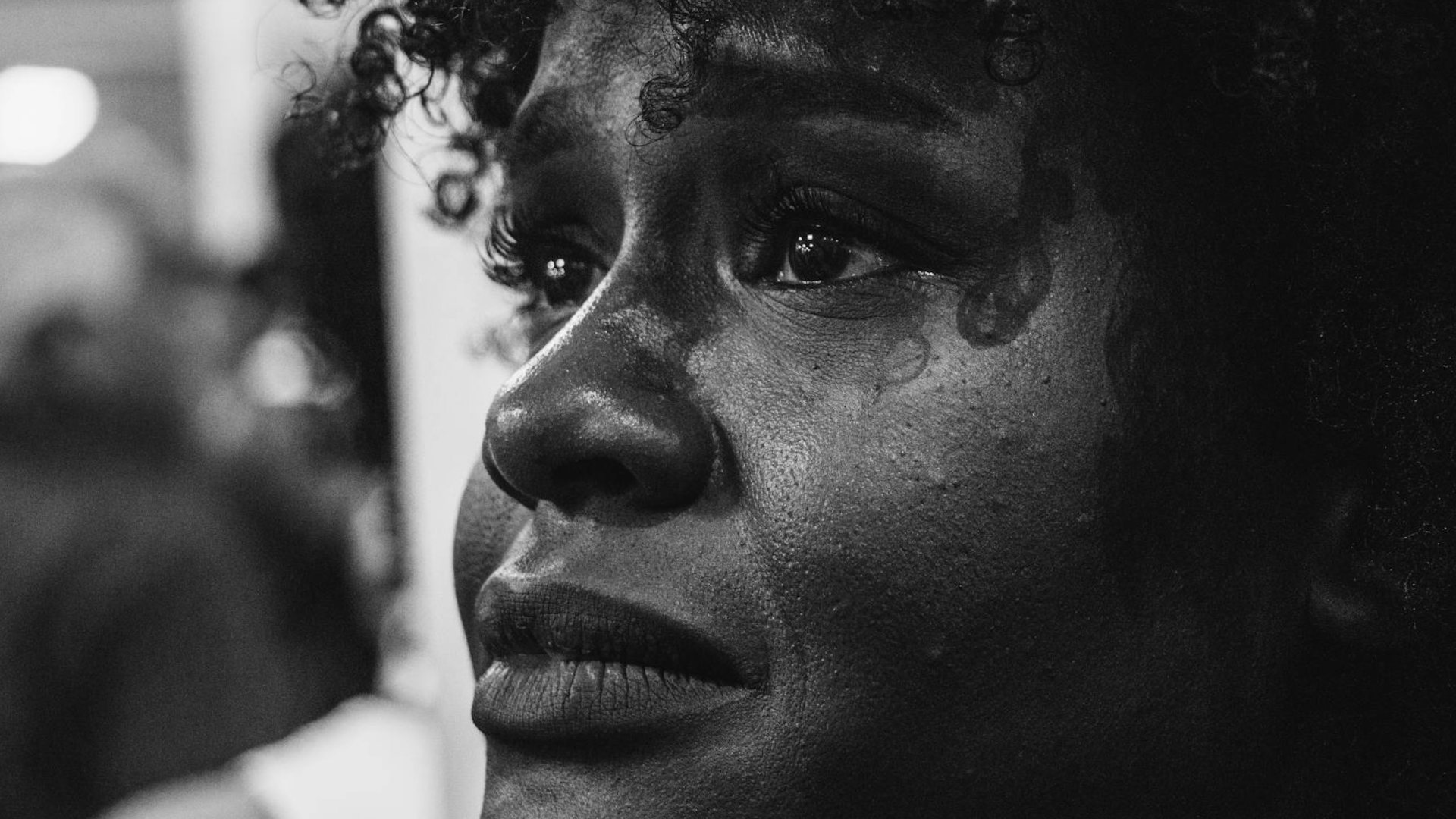In celebration of Black History Month, this series explores the significance of Negro spirituals, a genre of music with a rich legacy in American history and a deep impact on popular culture. Click here to read the introduction to the series >>
My first exposure to the Negro spiritual “Mary, Don’t You Weep” was vocal sextet Take 6’s recording on their self-titled debut album in 1987—their vocals are so smooth and buttery. Take 6 went on to have a spectacular, Grammy-winning career, and this song became one of their trademark tunes. For that reason, theirs has always been my favorite.
But a close runner-up is this live recording from 1972 with Aretha Franklin and a choir led by the Rev. James Cleveland on piano. It’s nowhere near as smooth as Take 6’s version, but it’s even more powerful. Starting as a simmer, the song eventually boils over as Aretha starts preaching the story. It’s a compelling listen and a major part of why the song “Mary, Don’t You Weep” has endured in the popular imagination. There are covers by the ’90s gospel group Trin-i-tee 5:7, Pete Seeger, Bruce Springsteen, and even an old demo recording by Prince.
Oh, Mary don’t you weep / Tell Martha not to moan.
If I could, I truly would / Stand on the rock where Moses stood.
Pharaoh’s army / Drowned in the Red Sea.
Oh, Mary don’t you weep / Tell Martha not to moan.
I have a memory of talking with my dad, the Rev. Henry Greenidge, about the Take 6 version. He was probably in his late 40s at the time, and I was probably 12. Maybe we were listening in the car. I remember him asking if I knew what they were singing about. I knew that Mary was in the Bible and she knew Jesus, so I think I told him that. Then he asked me if I knew who Pharaoh was, and I did. I knew that story too.
And then he asked me a question I wasn’t prepared for.
“Why would they be singing about Mary and Jesus in the New Testament, and then immediately start singing about the Old Testament? Why would they put both of those in the same song?”
In my mind I was thinking, Gee, I dunno, Dad. Maybe the guys in Take 6 just don’t read their Bibles that much.
Decades later, I posed that question to Dr. Rollo Dilworth.
“Of course, ‘Mary, Don’t You Weep’ makes direct references to Mary and Martha’s bereavement over the crucifixion of Christ,” began Dilworth.
In fact, Mary’s grief for Jesus was foreshadowed by her grief over her brother Lazarus, both of whom were eventually resurrected.
“But the spiritual utilizes an Old Testament reference as a tool of comfort for a New Testament issue,” continued Dilworth. “It basically says, ‘Mary and Martha, here you are in this present situation of weeping and moaning, but don’t be too sad, because joy and deliverance are coming. How do we know that? Because look at what happened to Pharaoh.’”
In this way, the song does a bit of time travel. As we listen in the present, we are hearkened back to one biblical narrative—about Jesus, Mary, and Martha—and then, to find resolution to that story, we zoom even further back to a different story about the children of Israel running from Pharaoh’s army. The old story is informed by an even older story.
And if this story were dramatized into a feature film, we could even go one layer deeper and get into the mindset of the Israelites facing Pharaoh’s army. I bet there were Israelites who, hanging on to whatever shred of faith they had left in the face of impending death, were reminding themselves of their own inherited stories of trials overcome. Maybe they reminded themselves of God’s faithfulness by looking back generations prior when Joseph rescued his brothers from famine, even though they’d betrayed him when they were all younger.
It’s the Bible’s version of Inception—a story within a story within a story.
Meanwhile back in the present, we as listeners are encouraged to find comfort in our own plight with the knowledge that Mary and Martha’s grief was short-lived, that Jesus’s death was not final. As Mary could look back to Exodus, so we can look back to Mary.
“It’s no mistake that many spirituals include references from Exodus,” said Dilworth, “because the whole book speaks of liberation and freedom.”
Indeed, a whole theology has been shaped around those narratives. At the time songs like “Mary, Don’t You Weep” were being passed along through the oral tradition, generations of African Americans were enduring the bitter taste of racism and bigotry, not only through the institution of chattel slavery but later through centuries of political and economic disenfranchisement during the Reconstruction and Jim Crow eras. As such, many spirituals contained encoded messages that would aid enslaved people in preparing for freedom.
“Mary, Don’t You Weep” doesn’t have the encoded messaging in the same way that, say, “Wade in the Water” did. (“Wade in the Water” was not only a reference to the healing at the pool in John 5, but also a warning for escaping slaves to use rivers to mask their scent from dogs that were tracking them.) But there is an interesting double message in the song, albeit somewhat implied.
Go back and listen to the Aretha Franklin version linked above—especially around the four-minute mark, where Aretha really starts singing about Mary’s experience with Jesus after their brother Lazarus died. Listen to the way Aretha starts wailing. It’s as if she has fully immersed herself in Mary’s frame of mind. She’s weeping and moaning right along with Mary.
The wonderful irony is that “Mary, Don’t You Weep” is not, in fact, imploring Mary not to weep at all. Rather, in a more subtle way, it’s reminding Mary that her weeping, while real, is temporary.
And this, to me, is the genius of the song. Many of us have gone through something difficult and had to endure the indignity of someone invalidating your emotional response to that tough situation. The stereotypical example is the woman who is having an emotional experience and her husband blithely tells her to calm down. It’s like, No, YOU calm down. I’m going through something over here.
“Mary, Don’t You Weep” understands this dynamic. That’s why it’s a song, and not simply a command. It weeps and moans right along with Mary and Martha, giving them space to grieve while calling them to a truth beyond their grief.
Folks, God knows what you’re going through. Jesus knows when and why it hurts, and even when it appears he is taking his sweet time, God is still good. So weep if you must, even for a season. But don’t forget about Pharaoh’s army. Don’t forget about Moses and the children of Israel.
And if you need a pick-me-up, don’t forget to play this song.














